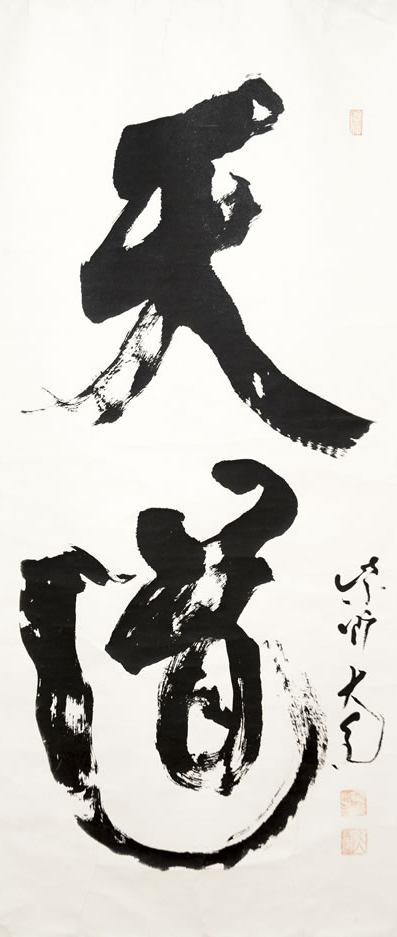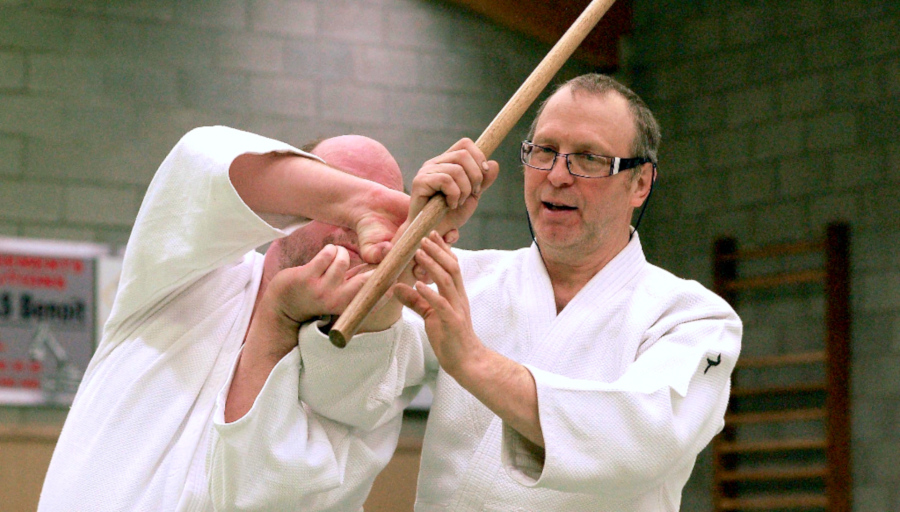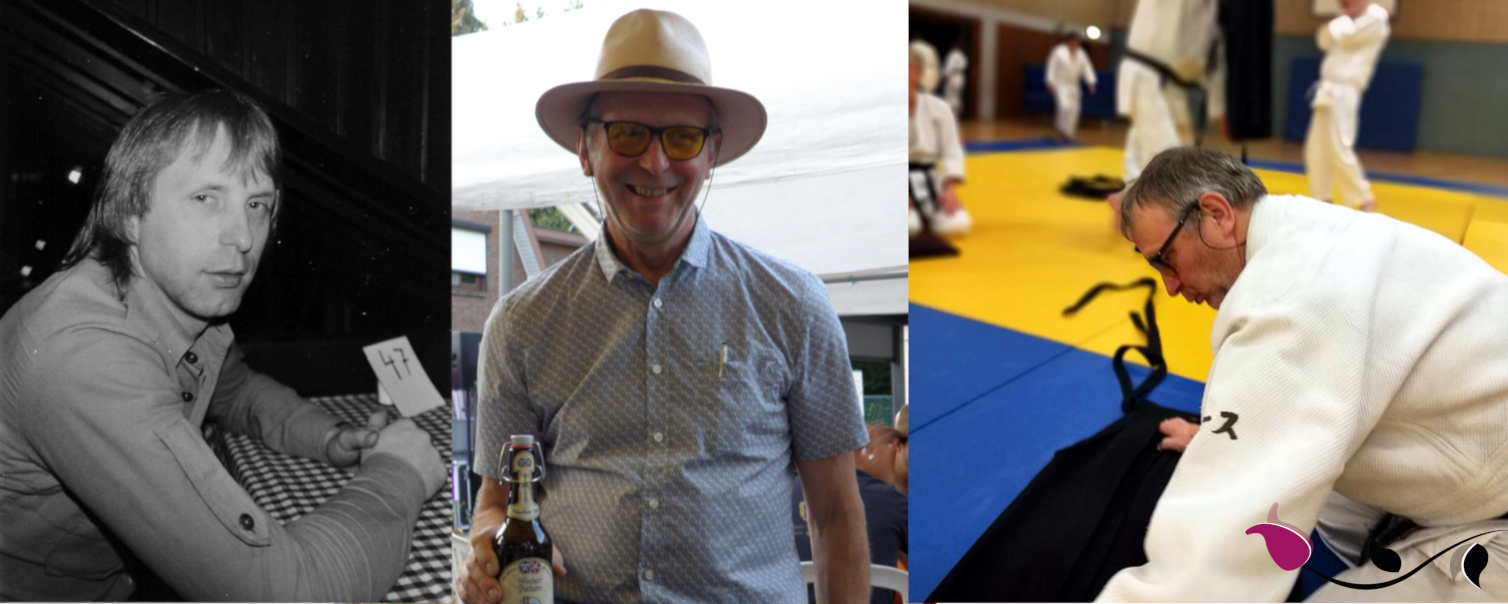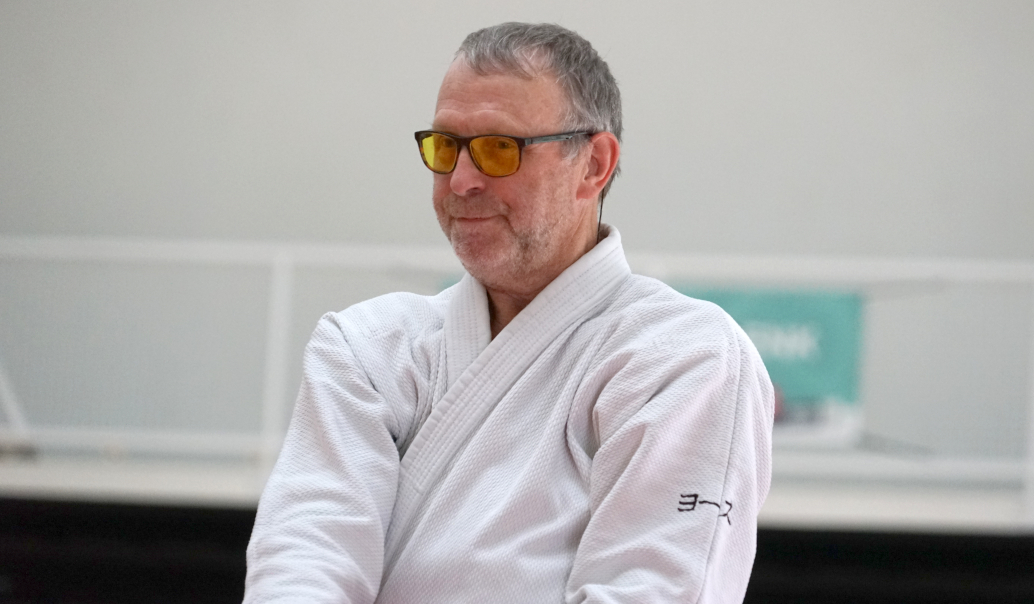As with any sport, aikido also has agreements with regard to dealing with each other and behavior in the dojo. Below you will find some general guidelines.
- Every aikidoka must go his own way. Do not expect others to 'carry' you. Therefore, train regularly.
- The aikidoka watches his health, cares for his body and wears a clean keikogi and hakama. Nails are short, no jewelry.
- Before the lesson, the aikidoka puts his jo, bokken and tanto on the edge of the tatami. He or she places their zori with the heel side against the tatami and sits in seiza; in one row, straight and quiet.
- Treat your weapons as a part of yourself. Never touch anyone else's jo, bokken or tanto without the permission of the owner. Before using them, first greet to the Kamiza.
- Aikido is not a pastime, so practice with attention.
- The aikidoka regards his partner as himself: with respect and as an equal. The aikidoka regards his partner as his enemy: with full attention and without reserve. The aikidoka tries to blend these two poses into a whole.
- Before and after class, teacher and students greet, first to the Kamiza and then to each other.
- If the aikidoka is asked as uke, he or she greets before and after practicing with the nage.
- A small act is much more than a long conversation. Therefore practice in silence.
- The aikidoka can only hold him- or herself responsible for an accident.
In addition, during the training, many things are explained that are traditional and prevalent in Aikido, e.g. greeting at the start and end of the training, dealing with the partner, behavior with the weapons.
All articles in this category
-
Clothing
To practice aikido you don't need much at the start. The beginning Aikidoka is already ready for his first lessons with a pair of slippers and nice loose clothing. After a few introductory lessons, if the decision has been taken to continue with Aikido, the step to an aikido-suit is a good...
-
Weapons
In addition to unarmed practice, there is also weapons training.
-
Etiquette
As with any sport, aikido also has agreements with regard to dealing with each other and behavior in the dojo. Below you will find some general guidelines.
-
Glossary
Some words, expressions, courtesies, etc. that are frequently used during training and seminars.
-
Shimizu Sensei and Son
Short biography of Kenji Shimizu and interview with his son and dojo chief Kenta Shimizu.






